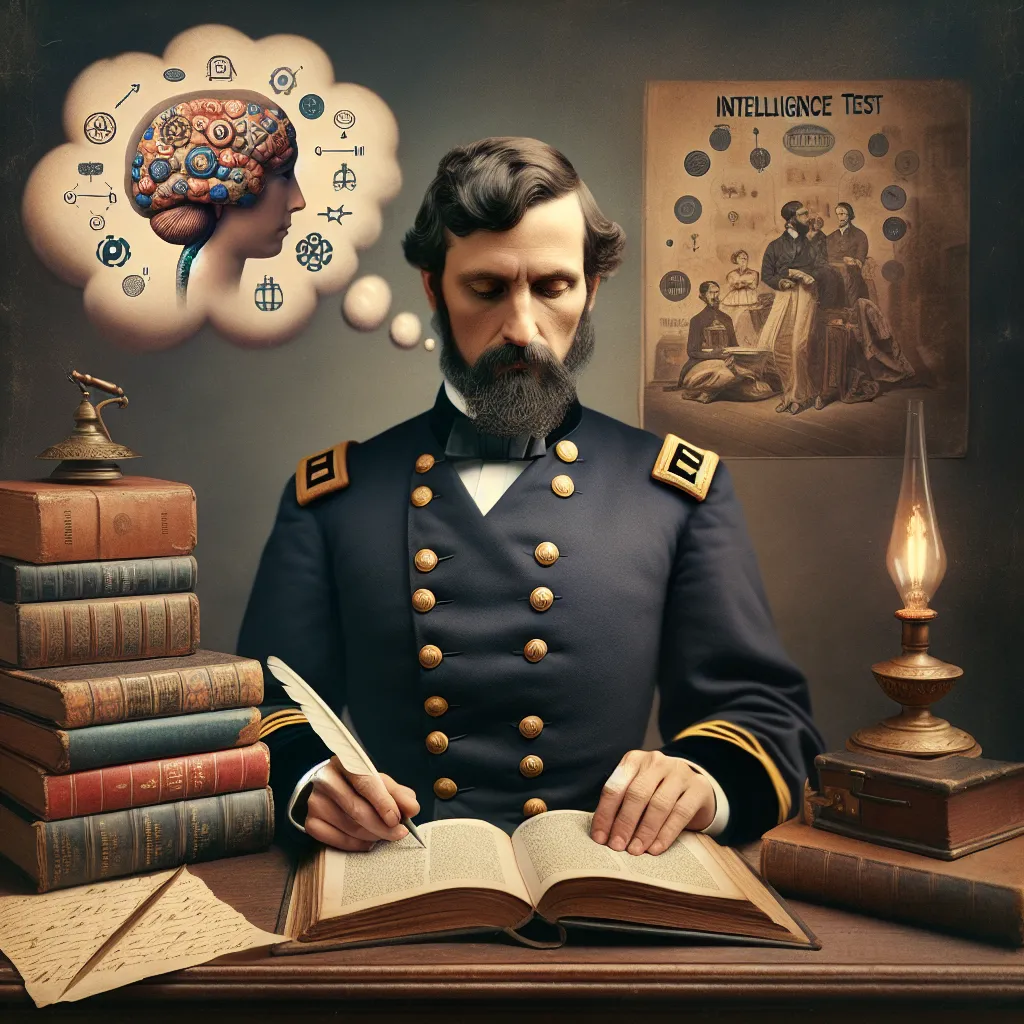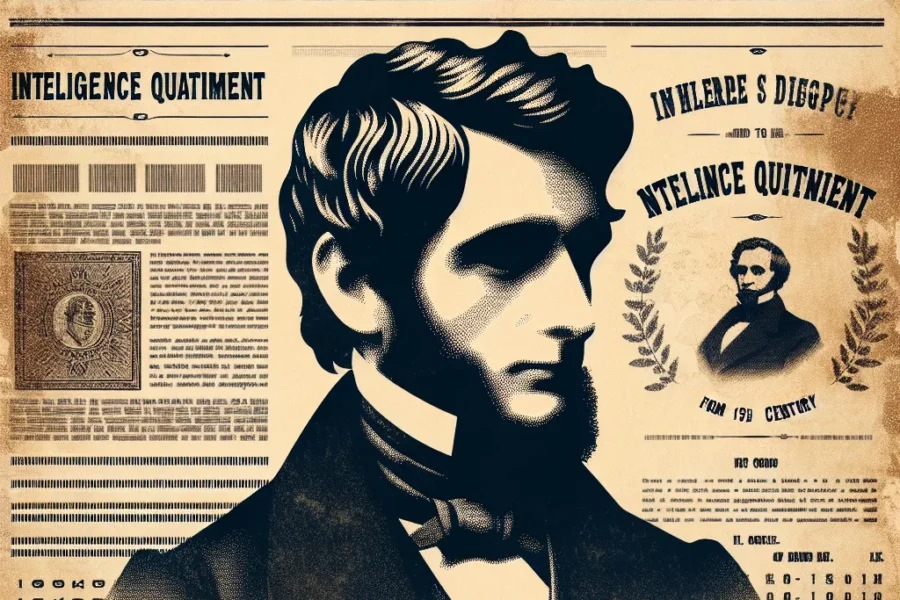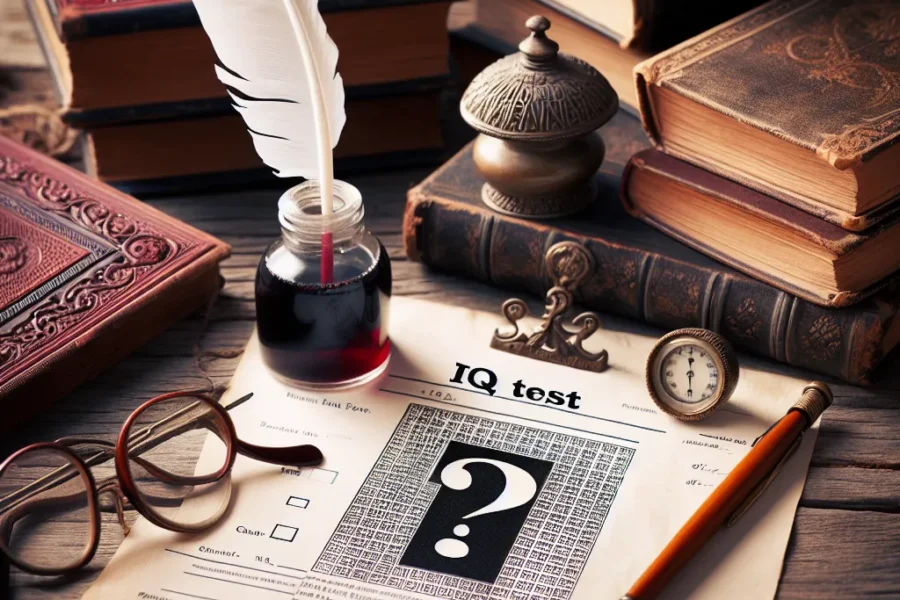Ulysses S. Grant, the 18th President of the United States and the commanding general who led the Union Army to victory during the American Civil War, remains an iconic figure in American history. Known for his steadfast determination, military acumen, and leadership during one of the nation’s most trying times, Grant’s intellectual capabilities have been a subject of fascination for many historians and enthusiasts. One intriguing question that often arises is: What was Ulysses S. Grant’s IQ score?
If you are looking for legitimate IQ Tests which pass the entry bar for Mensa, see our IQ Tests.
To address this question, it’s important to first understand the historical context surrounding IQ testing. The concept of measuring intelligence through standardized testing did not emerge until the early 20th century, long after Ulysses S. Grant had passed away in 1885. Therefore, assigning a precise IQ score to historical figures like Grant involves a degree of speculation and retroactive analysis. Nevertheless, through examining his life, achievements, and the observations of those who knew him, we can gain some insight into his intellectual capabilities.
### Early Life and Education
Grant was born on April 27, 1822, in Point Pleasant, Ohio. His early years were relatively unremarkable, and unlike some of his contemporaries, Grant did not exhibit the precocious intelligence often associated with high IQ scores. However, he was a diligent student with a keen interest in reading and a notable talent for horsemanship.
In 1839, at the age of 17, Grant was admitted to the United States Military Academy at West Point. While at West Point, Grant’s academic performance was average; he graduated 21st out of 39 cadets in the class of 1843. Despite not excelling academically, Grant displayed a strong aptitude for mathematics and engineering, fields which require considerable analytical and problem-solving abilities.
### Military Career and Intelligence
Grant’s military career began during the Mexican-American War (1846-1848), where he served with distinction and gained valuable experience. It was during the American Civil War, however, that Grant’s strategic brilliance became fully apparent.
As a military leader, Grant demonstrated several qualities often associated with high intelligence:
1. **Strategic Foresight:** Grant’s ability to envision and execute long-term strategies was instrumental in the Union’s victory. His campaigns, particularly the Vicksburg Campaign and the Overland Campaign, showcased his knack for planning, adaptability, and understanding the broader implications of each battle.
2. **Decisiveness:** Grant was known for his decisiveness and willingness to take calculated risks. His famous dictum, “When in doubt, fight,” reflects his ability to make swift decisions under pressure, a trait indicative of high executive function.
3. **Resilience:** One of Grant’s most admired qualities was his resilience in the face of adversity. Despite numerous setbacks and challenges, he remained committed to his objectives and adapted his strategies as needed. This perseverance is often linked to emotional intelligence and mental fortitude.
4. **Collaboration and Leadership:** Grant’s ability to work effectively with others, marshal resources, and inspire his troops highlights his leadership skills. He valued input from his subordinates and promoted a culture of innovation and initiative within his ranks.
### Presidential Tenure and Intelligence
Grant’s presidency (1869-1877) is remembered for both notable achievements and significant challenges. As President, he championed civil rights for African Americans, supported the passage of the 15th Amendment, and took steps to combat the Ku Klux Klan. These actions demonstrate his moral and ethical reasoning, as well as his commitment to justice and equality.
However, Grant’s administration was also marred by numerous scandals and instances of corruption among his appointees. Critics argue that his trusting nature and lack of political savvy contributed to these issues, suggesting that his social intelligence or “political IQ” might not have matched his military prowess. Nevertheless, his administration’s accomplishments in areas like civil rights and foreign policy indicate a strong intellectual capacity for high-level governance.
### The Speculation of Grant’s IQ
Given the lack of direct evidence, estimating Ulysses S. Grant’s IQ score involves synthesizing various indicators from his life and career. Historians often engage in retroactive IQ estimation based on documented achievements, personal attributes, and contemporaneous accounts.
One approach is to consider Grant’s demonstrated skills and activities typically associated with high intelligence. For instance, his proficiency in mathematics and engineering, strategic military thinking, and capacity for abstract reasoning suggest a cognitive profile that might correspond to an above-average IQ. Additionally, Grant’s written works, including his acclaimed memoirs, exhibit clarity of thought, depth of understanding, and articulate expression, all indicative of strong intellectual abilities.
Another factor to consider is the assessment of Grant’s contemporaries. Many who worked closely with him, including fellow military leaders and statesmen, acknowledged his intellectual strengths. Abraham Lincoln famously remarked, “I can’t spare this man; he fights,” highlighting Grant’s indispensable strategic and leadership qualities.
### The Broader Implications
While it is fascinating to speculate about Ulysses S. Grant’s IQ, it is equally important to recognize that intelligence encompasses a broad spectrum of attributes beyond what standardized tests can measure. Grant’s legacy is a testament to a diverse set of intelligences, including strategic and emotional intelligence, resilience, and moral courage.
Moreover, historical figures like Grant remind us that intelligence must be understood within the context of its application. Grant’s contributions to American history, both as a military leader and as President, reflect a profound impact that transcends numerical quantification. His ability to navigate the complexities of his era and effect lasting change underscores the multifaceted nature of intelligence.
### Conclusion
In conclusion, while it is impossible to assign a definitive IQ score to Ulysses S. Grant, a careful examination of his life and accomplishments suggests that he possessed significant intellectual strengths. His strategic genius, leadership qualities, and ethical commitments paint a picture of a highly capable and intelligent individual. Whether or not he would have excelled in a modern IQ test, Grant’s enduring legacy speaks to the broader and more nuanced dimensions of human intelligence.



Leave a Comment